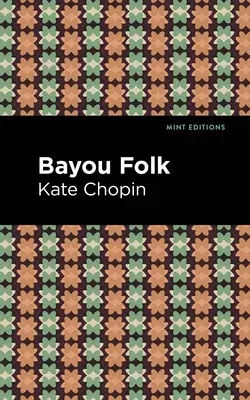Bayou Folk (1894) is a short story collection by American author Kate
Chopin. Chopin, a pioneering feminist and gifted writer, sought to
portray the experiences of Southern women and ethnic minorities
struggling to survive in an era decimated by war and economic hardship.
Bayou Folk collects twenty-three of her stories.
"Beyond the Bayou" is the story of La Folle, a thirty-five year old
black woman living on the outskirts of a Louisiana plantation.
Traumatized with memories of the war, she has spent her entire life on
one side of the bayou. From her modest cabin, she entertains visits from
the owner of Bellissime plantation and his young children. La Folle
holds a special fondness for Chéri, the owner's young son, whom she
entertains with stories of a world she has seldom, if ever, seen, a
world "beyond the bayou." When a terrible accident occurs, however, she
is forced to face her deepest fears, or else suffer the most unthinkable
loss of all. In "Désirée's Baby," the most acclaimed of Chopin's short
stories, a young woman married to plantation owner Armand Aubigny awaits
the birth of her first child. When the child is born with a racially
ambiguous appearance, however, Aubigny quickly blames his wife, whose
parents are suspected of having African American heritage. Banished from
the plantation, Désirée leaves her young family behind, unaware of the
secret her husband declined to share. Bayou Folk showcases the
literary talent of Kate Chopin, a writer with an eye for characters on
the fringe, people whose hearts often clash with the rules and demands
of culture in the American South.
With a beautifully designed cover and professionally typeset manuscript,
this edition of Kate Chopin's Bayou Folk is a classic of American
literature reimagined for modern readers.


